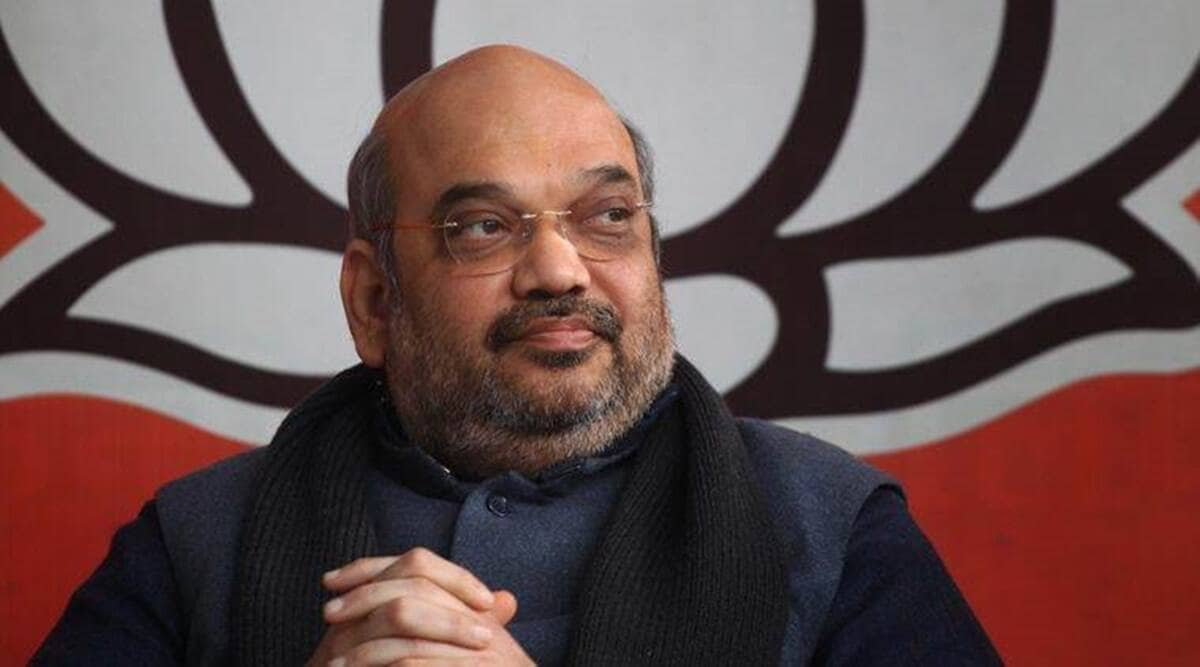 Union Home Minister Amit Shah. File
Union Home Minister Amit Shah. FileBESIDES COMBATING terrorism and bringing down violence in conflict theatres, the Centre has also tightened the functioning of NGOs that were engaged in “anti-national activities” and “religious conversion”, Union Home Minister Amit Shah said on Thursday.
Delivering the inaugural address at the first “chintan shivir”, or brainstorming session, of home ministers and top police officers from all states, Shah also said that at a time when crimes have become “borderless” and many trans-border laws have been enacted, states must come together to fight crime. “It is our collective responsibility that we combat crimes together, beyond national, state or regional boundaries,” he said. Shah said that by 2024-end, every state would have a branch of the National Investigation Agency (NIA).
“We have brought reforms in the FCRA (Foreign Contribution Regulation Act). Misusing the FCRA, some NGOs were openly engaging in anti-national activities, religious conversion, political opposition to development projects and putting roadblocks on the path of development. Taking a strong step, the government brought amendments to FCRA in 2020 and, through it, established an effective system of monitoring NGOs and stopping the misuse of foreign funding they receive,” he said. “I am confident we will take this forward in the days to come.”
Shah said the Ministry of Home Affairs (MHA) was working on reforms in the Code of Criminal Procedure (CrPC), Indian Penal Code (IPC) and FCRA, and their revised blueprint will be tabled in Parliament soon.
In his address, Shah called for a united approach towards combating inter-state crimes. “The Constitution gives the mandate of managing law and order to states, but, due to technological advancements, today several such laws have been brought that have no boundaries — neither state nor national boundaries. At a time when crimes have become border-less, we can combat them only when all states come together to reflect on them, make plans and strike unitedly,” he said.
“It is our collective responsibility that we combat crimes together, beyond national, state or regional boundaries, rid the society of fear, and create an environment in which society engages itself with development at high speed,” he said.
The two-day chintan shivir, to discuss issues of law and order and security, began on Thursday at Surajkund, in Haryana’s Faridabad district. While chief ministers of 10 states, where CMs hold the Home portfolio, attended it, other states sent their deputy CMs, home ministers or top police officers.
Kerala CM Pinarayi Vijayan and his Punjab counterpart Bhagwant Mann were the only chief ministers from Opposition-governed states who were present. The other chief ministers at the event were Yogi Adityanath (Uttar Pradesh), Himanta Biswa Sarma (Assam), Manohar Lal Khattar (Haryana), Pushkar Singh Dhami (Uttarakhand), Manik Saha (Tripura), Pramod Sawant (Goa), Prem Singh Tamang (Sikkim) and N Biren Singh (Manipur).
The chief ministers of most non-BJP states who hold the Home portfolio – Mamata Banerjee (West Bengal), Nitish Kumar (Bihar), M K Stalin (Tamil Nadu) and Naveen Patnaik (Odisha) – skipped the session. West Bengal was represented by ADG (Home Guards), Telangana and Bihar were represented by their police chiefs and senior bureaucrats.
Shah said India has to achieve its goals with limited resources and states need to focus on optimisation, rationalisation and integration of resources. He listed the Centre’s achievements in bringing down violence in J&K, the Northeast, Left Wing Extremism-affected districts and the war on drugs.
Stating that the Centre has taken effective steps against terrorism, Shah said, “Under the government’s zero-tolerance policy (on terror), we have brought amendments to the NIA Act and UAPA (Unlawful Activities (Prevention) Act), and given the NIA more powers. Recently, we banned the Popular Front of India. We have decided that by the end of 2024, every state will have a branch of NIA.”
Stating that the country faces multiple challenges, Shah said, “Instead of a regional approach, we need to have a thematic approach. All states will have to coordinate among themselves and cooperate with each other. We need to neutralise inter-state gangs. All Central agencies will continue to cooperate with you (states).”
Shah said the government is working on the principle of “one data, one entry”, under which the NIA has been given a national database related to terror cases. The NCB has a national database on narcotics cases, Enforcement Directorate has a database on economic offences, and National Crime Records Bureau has been given the responsibility of creating a fingerprint database – National Automated Fingerprint Identification System – and National Database of Sex Offenders.